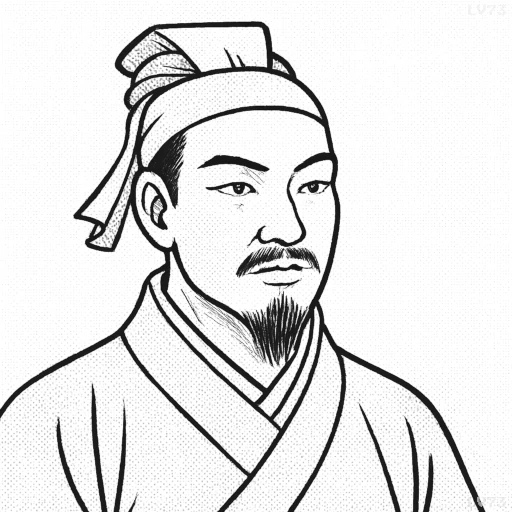“Be extremely subtle, even to the point of formlessness. Be extremely mysterious, even to the point of soundlessness. Thereby you can be the director of the opponent’s fate.”

- 544 BC-496 BC
- Born in China
- Military strategist, military strategist
table of contents
Quote
“Be extremely subtle, even to the point of formlessness. Be extremely mysterious, even to the point of soundlessness. Thereby you can be the director of the opponent’s fate.”
Explanation
In this quote, Sun Tzu emphasizes the importance of stealth, deception, and indirect influence in warfare. The idea is that by being unpredictable, elusive, and difficult to read, a commander can manipulate the enemy’s decisions without revealing their own intentions. Subtlety and mystery serve to create confusion and uncertainty in the opponent’s mind, causing them to second-guess their strategies and actions. If a leader can maintain an air of indistinctness, they prevent the enemy from gaining the clarity needed to mount an effective defense. By remaining silent and formless, they retain the initiative and can control the course of events without exposing their true plans.
This principle extends far beyond military applications and is relevant in business, politics, and even personal interactions. In business, companies that maintain an air of mystery around their upcoming products or strategies often generate excitement and cause competitors to make miscalculations. For example, Apple’s secrecy around new product launches creates anticipation and prevents rivals from responding effectively. In politics, leaders often use ambiguity in their speeches and policies to keep opponents uncertain of their true goals, allowing them to maintain the upper hand. A classic example is the Cold War, during which both the United States and the Soviet Union often engaged in psychological warfare, using ambiguity and secrecy to control the course of events and manipulate perceptions without openly revealing their actions. In negotiations, the ability to remain enigmatic and keep one’s intentions unclear can cause the other party to over-prepare or overestimate the importance of certain decisions, thus gaining a strategic advantage.
Historically, this strategy of subtlety and mystery has been used by numerous leaders. Machiavelli’s concept of the “prince” who keeps his true intentions hidden is an example of this tactic in political strategy. Similarly, Napoleon Bonaparte often used misinformation and deception to mislead his enemies, keeping his true movements and plans concealed until the moment of action. In World War II, the Allies used similar tactics during Operation Fortitude, creating false impressions of an impending invasion at Pas-de-Calais to deceive the Nazis about the true location of the D-Day landings. The success of this operation depended largely on maintaining a sense of formlessness and mystery, causing the Germans to misdirect their forces. Whether in warfare, business, or diplomacy, Sun Tzu’s insight into the power of subtlety and mystery remains a valuable tool for achieving strategic dominance by controlling the opponent’s perception and, ultimately, their actions.
Would you like to share your impressions or related stories about this quote in the comments section?
